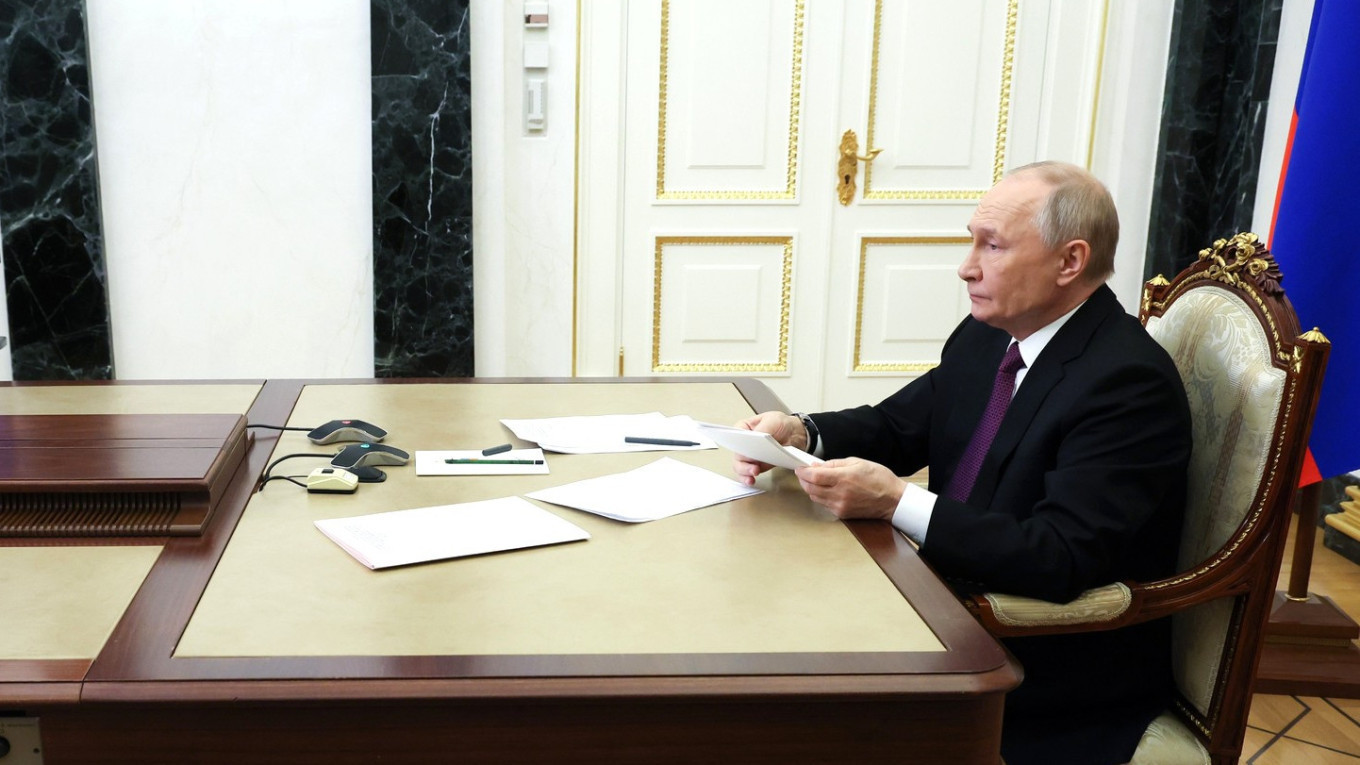On Wednesday, President Vladimir Putin enacted a law that simplifies the process for authorities to initiate criminal proceedings against persons and entities labeled as “foreign agents,” further tightening restrictions on dissent in Russia.
According to the new regulations, a single instance of violating “foreign agent” rules is now sufficient for authorities to pursue criminal charges. Previously, criminal prosecution could only occur after an individual or organization had committed two administrative violations within a single year.
Individuals identified as “foreign agents” now face potential prison sentences of up to two years for failing to fulfill reporting requirements or for other transgressions related to the regulations governing their activities.
The adjustments were introduced by lawmakers in July, who pointed to a notable level of noncompliance with the existing laws. This legislation is part of a broader initiative aimed at imposing harsher penalties and financial restrictions on those classified as “foreign agents.”
Since Russia’s large-scale invasion of Ukraine in 2022, the definition of “foreign agent” has been expanded to encompass anyone receiving not only financial aid but also non-financial support from abroad, or even assisting others in gathering information related to military matters. Those designated as “foreign agents” may be prohibited from receiving government funding or participating in educational and public outreach initiatives.
Earlier this year, the Finance Ministry proposed instituting a flat 30% income tax on “foreign agents” while denying them access to most tax deductions and benefits.
Since the introduction of the law in 2012, nearly 1,000 individuals, organizations, and media outlets—including The Moscow Times—have been classified as “foreign agents.” Those on the list are mandated to file comprehensive quarterly financial reports with the Justice Ministry and must include prominent disclaimers on all their publications and social media posts.
This label, which evokes Soviet-era sentiments, has been extensively utilized to target independent journalists, activists, artists, and NGOs accused of receiving foreign assistance or merely expressing criticism of the government.

